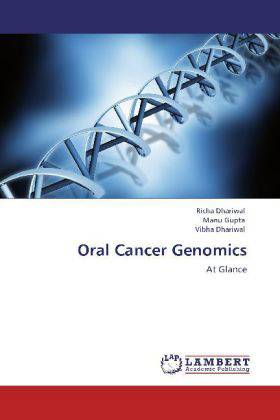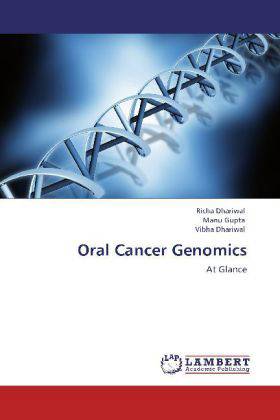
Je cadeautjes zeker op tijd in huis hebben voor de feestdagen? Kom langs in onze winkels en vind het perfecte geschenk!
- Afhalen na 1 uur in een winkel met voorraad
- Gratis thuislevering in België vanaf € 30
- Ruim aanbod met 7 miljoen producten
Je cadeautjes zeker op tijd in huis hebben voor de feestdagen? Kom langs in onze winkels en vind het perfecte geschenk!
- Afhalen na 1 uur in een winkel met voorraad
- Gratis thuislevering in België vanaf € 30
- Ruim aanbod met 7 miljoen producten
Zoeken
€ 63,45
+ 126 punten
Omschrijving
Oral squamous cell carcinoma is the sixth most common malignancy and is a major cause of cancer morbidity and mortality worldwide. Recent discoveries have dramatically increased our understanding of the most basic mechanisms controlling normal cell growth, and have also greatly enhanced our ability to investigate the nature of the biological processes that lead to cancer. Mathematical models predict that 8 10 individual genetic aberrations are required for progression to head and neck cancer alongwith hundreds of genetic aberrations, the vast majority unrelated to their pathogenesis. The challenge for modern genetic analysis is to differentiate consequential genetic aberrations from the background events. However,this explosion of information on cancer-specific chromosomal aberrations can be utilized by the scientific community only if compiled in easily accessible databases.
Specificaties
Betrokkenen
- Auteur(s):
- Uitgeverij:
Inhoud
- Aantal bladzijden:
- 68
- Taal:
- Engels
Eigenschappen
- Productcode (EAN):
- 9783848499786
- Verschijningsdatum:
- 24/04/2012
- Uitvoering:
- Paperback
- Afmetingen:
- 152 mm x 220 mm
- Gewicht:
- 113 g

Alleen bij Standaard Boekhandel
+ 126 punten op je klantenkaart van Standaard Boekhandel
Beoordelingen
We publiceren alleen reviews die voldoen aan de voorwaarden voor reviews. Bekijk onze voorwaarden voor reviews.









